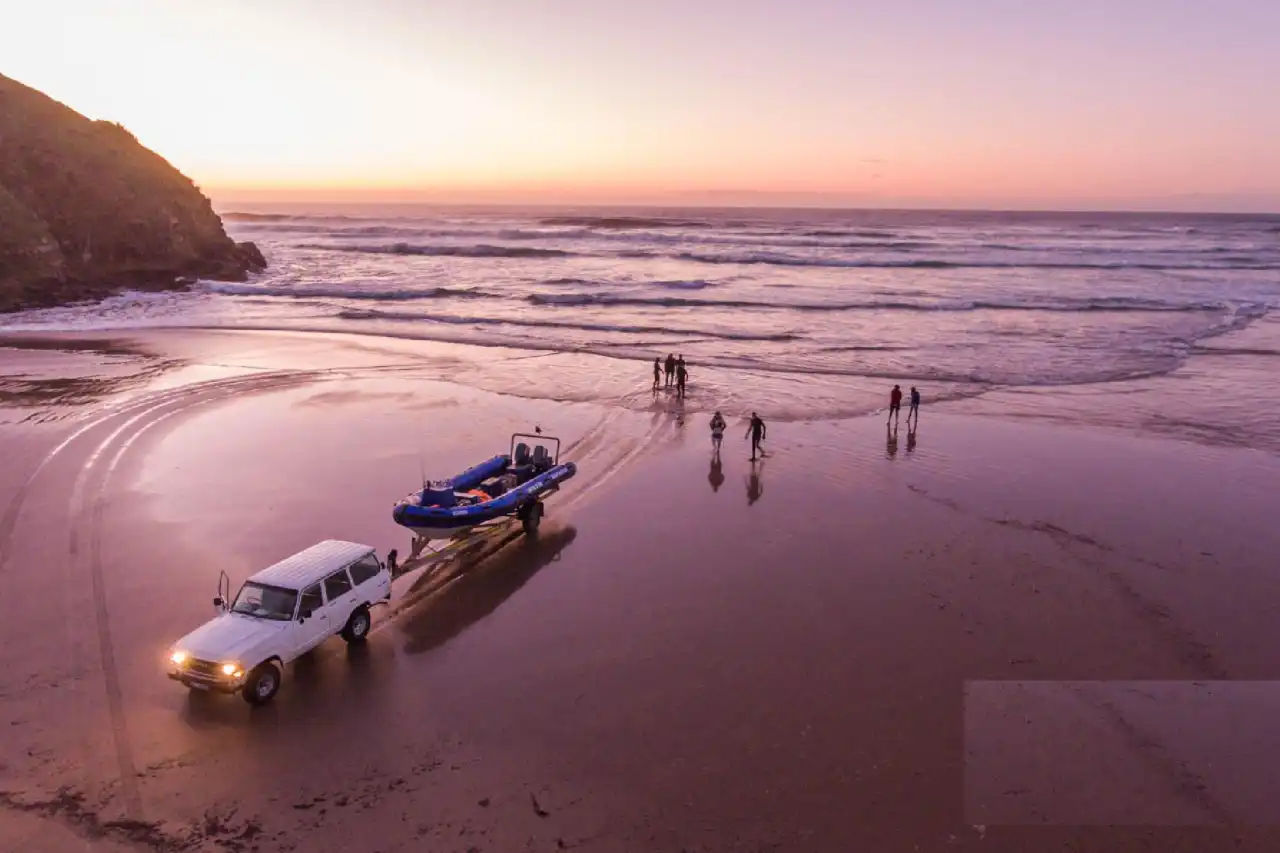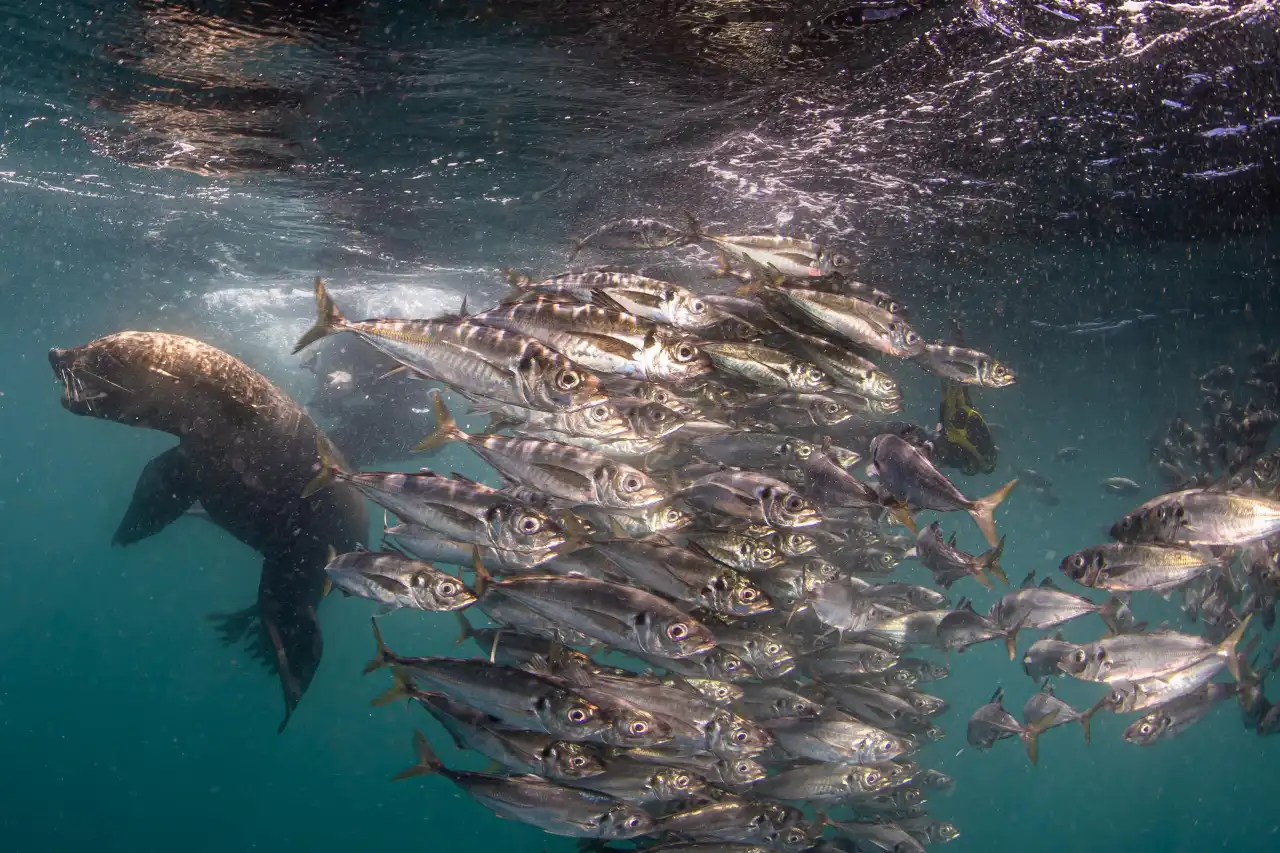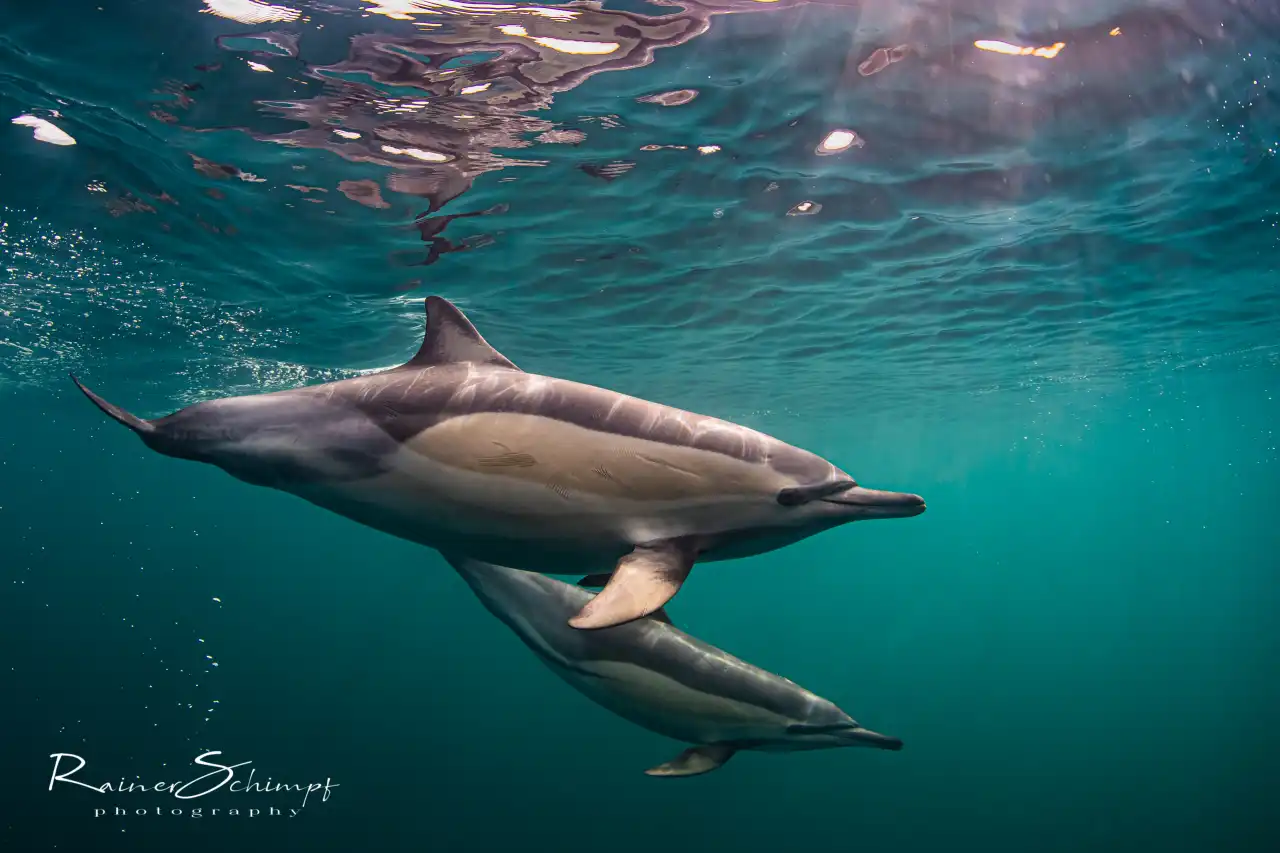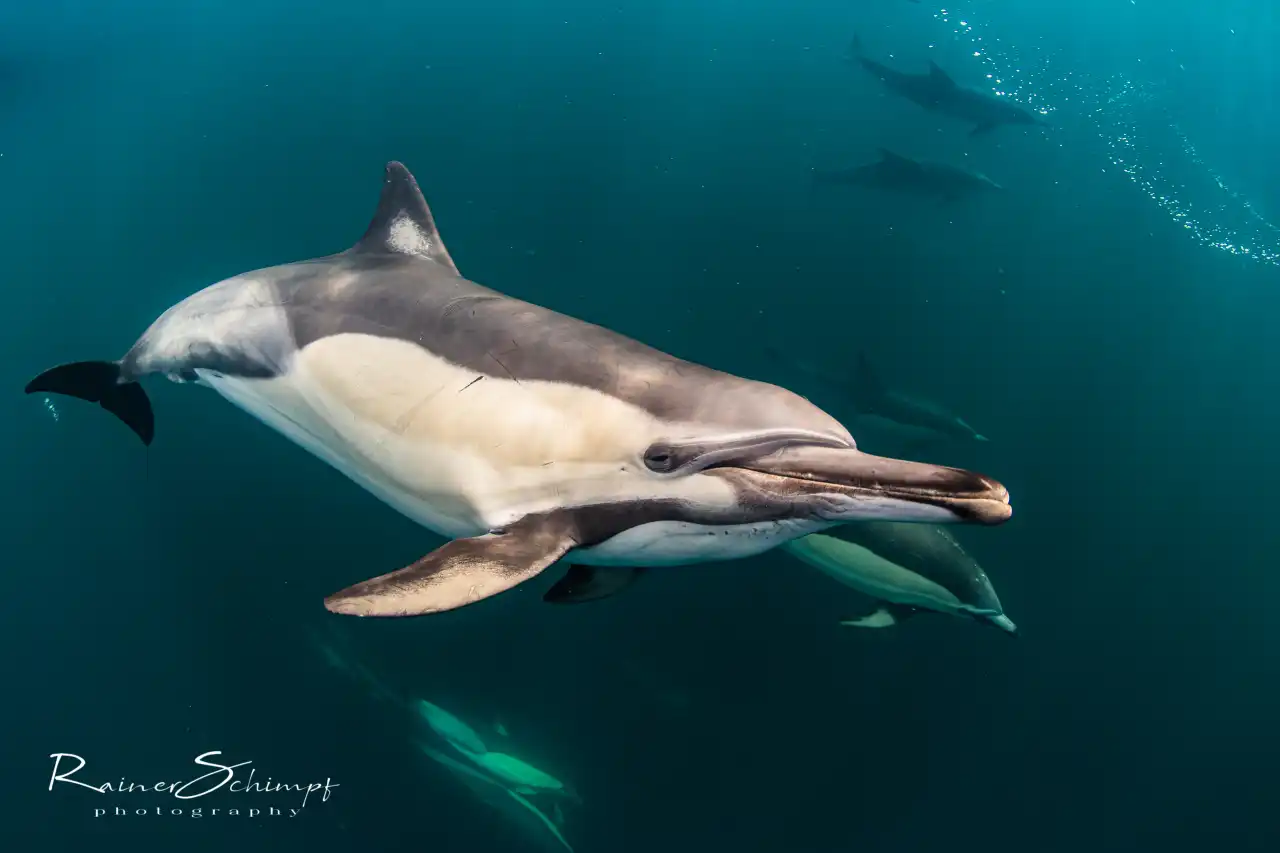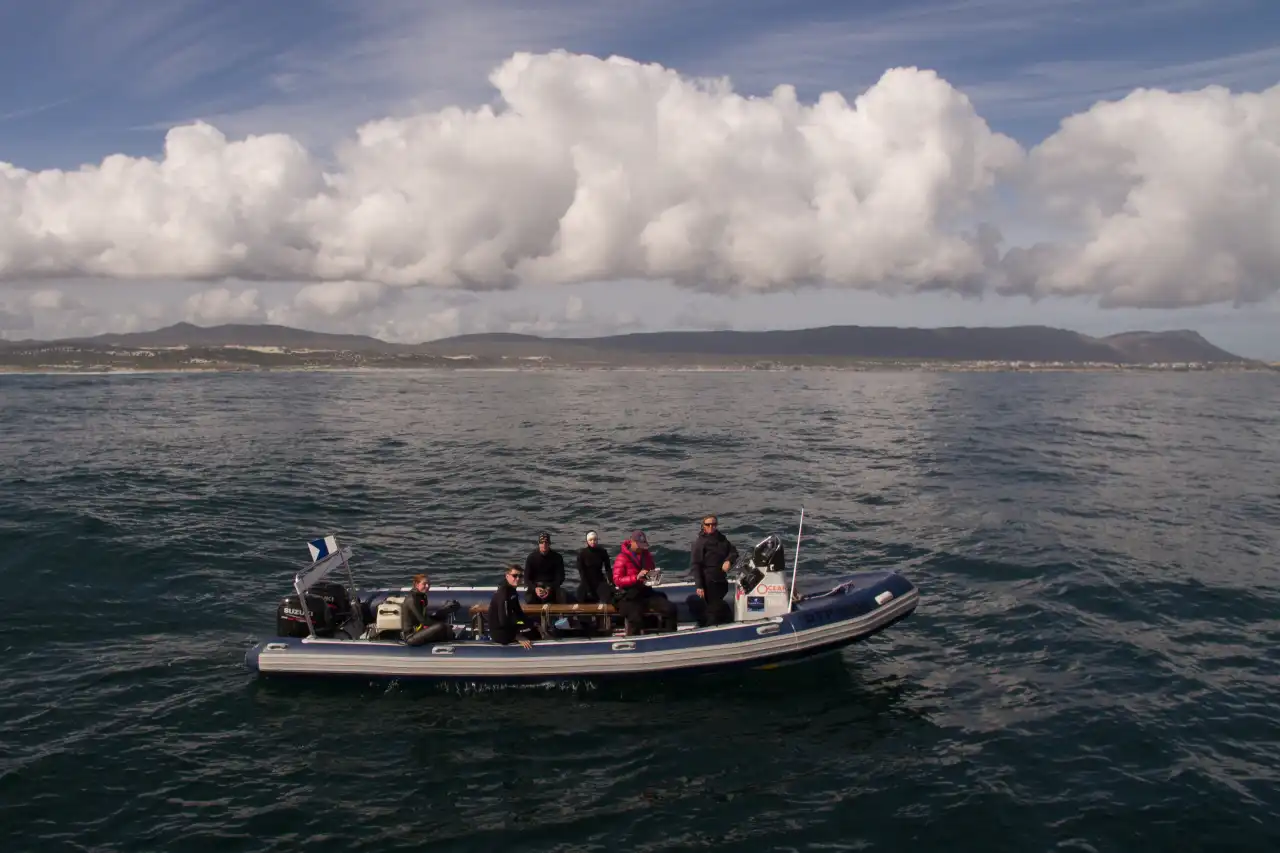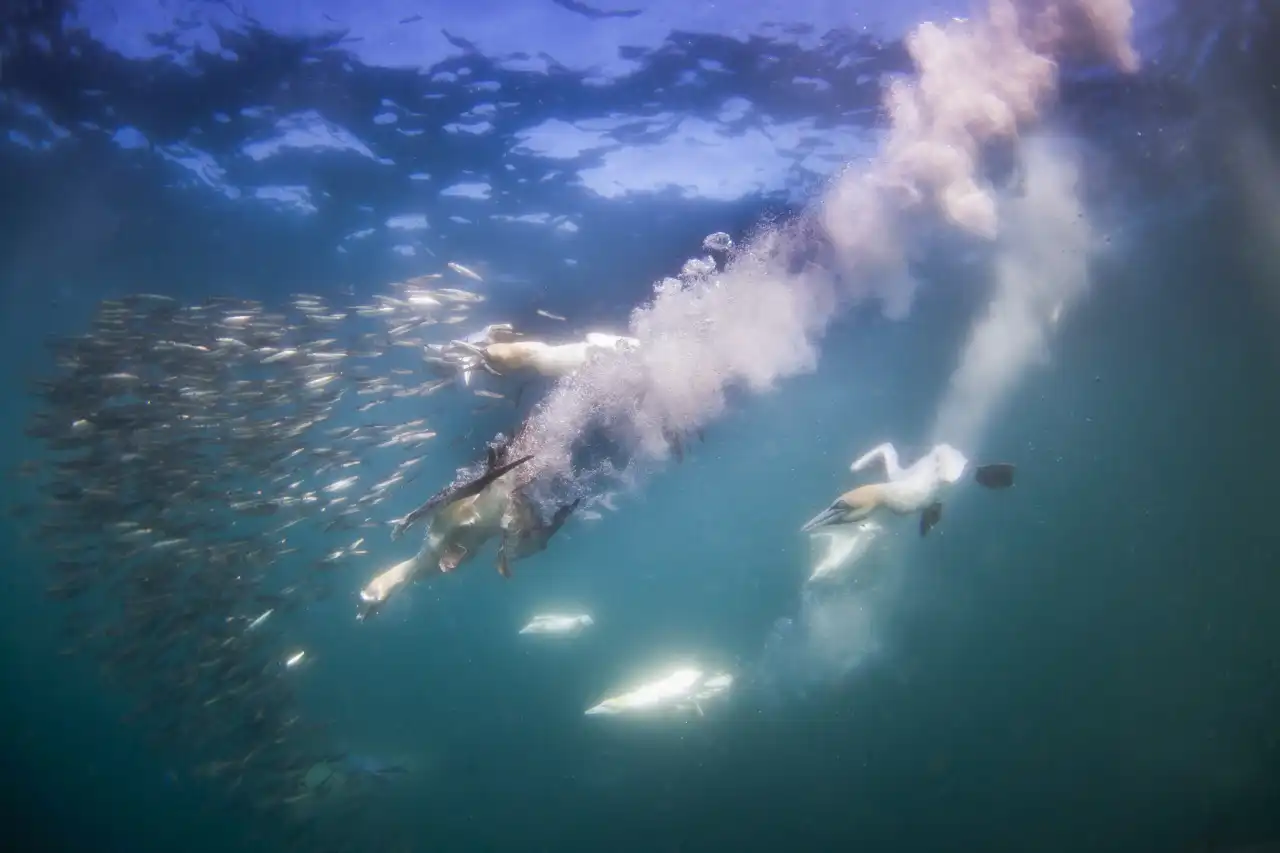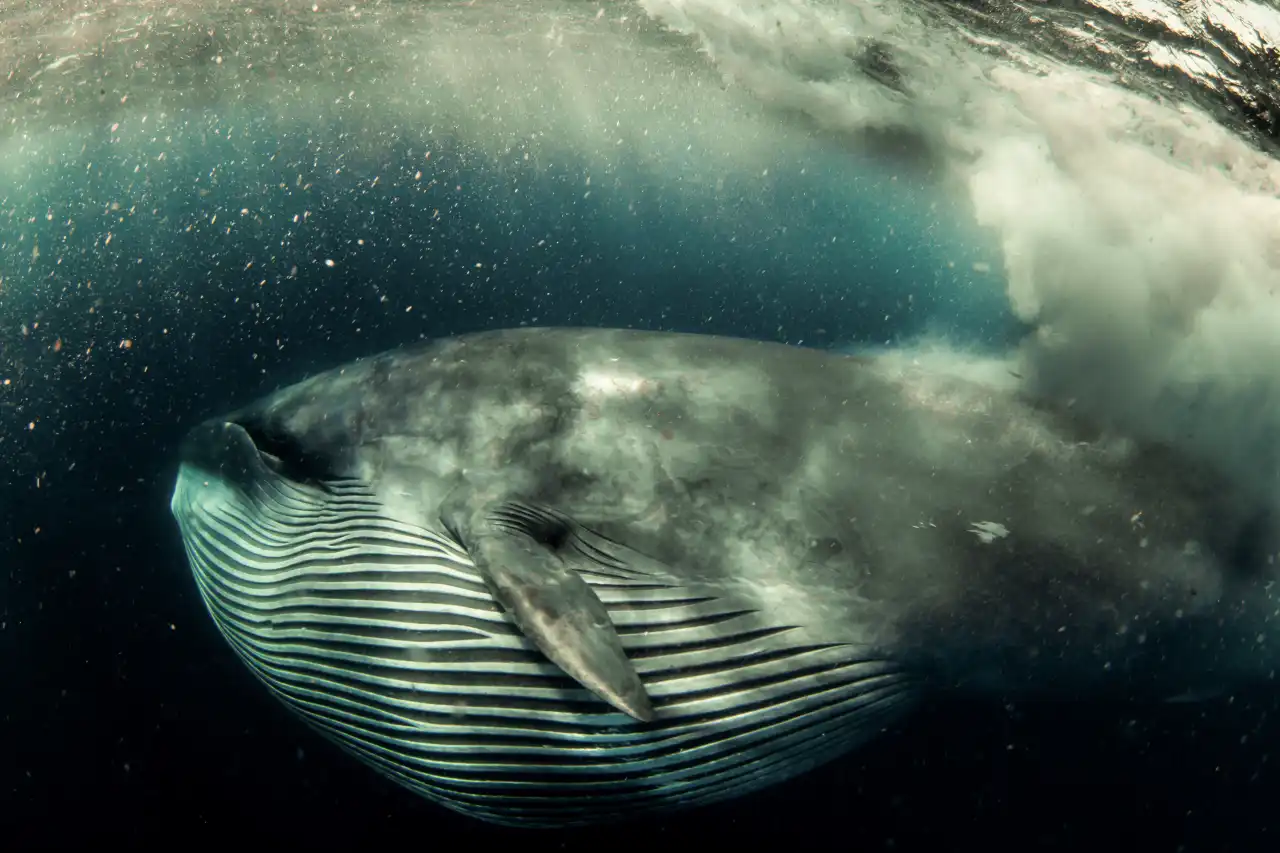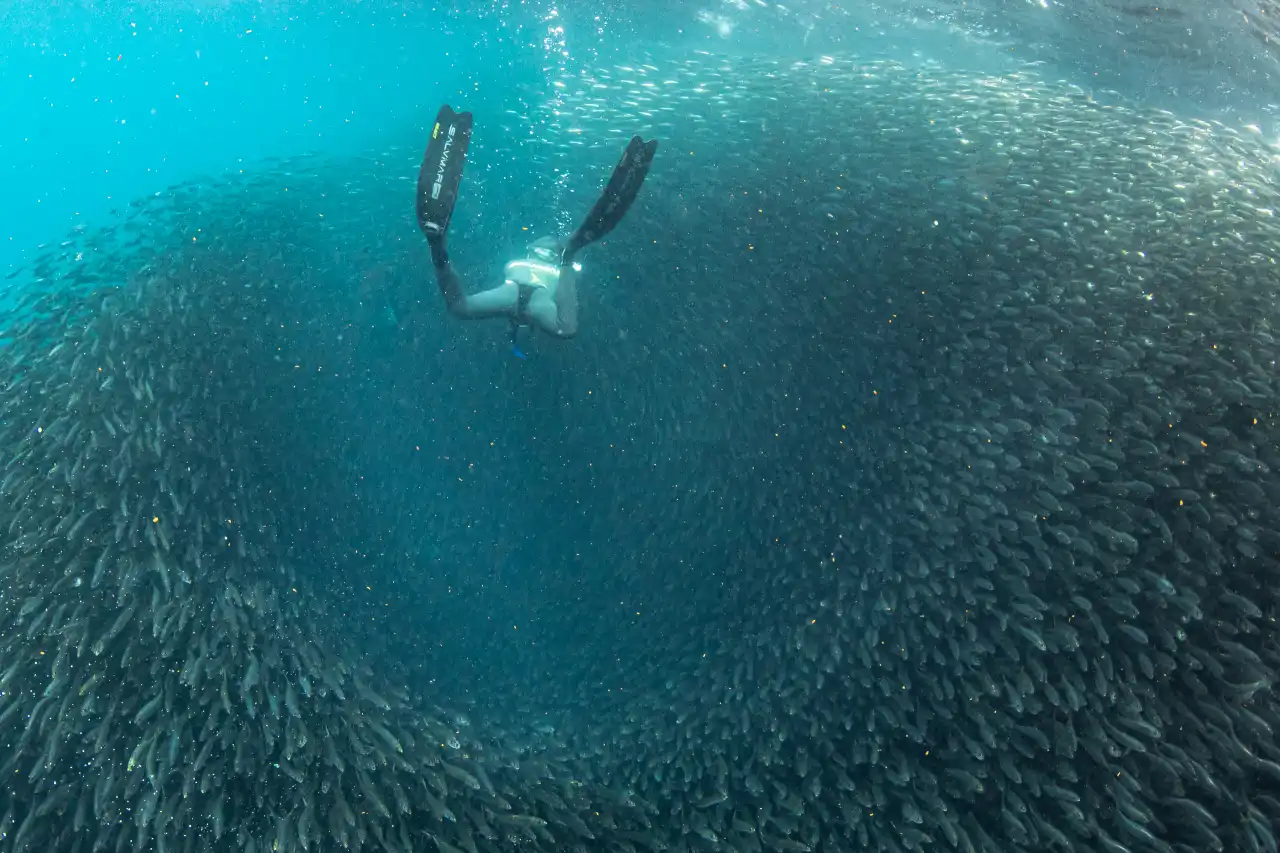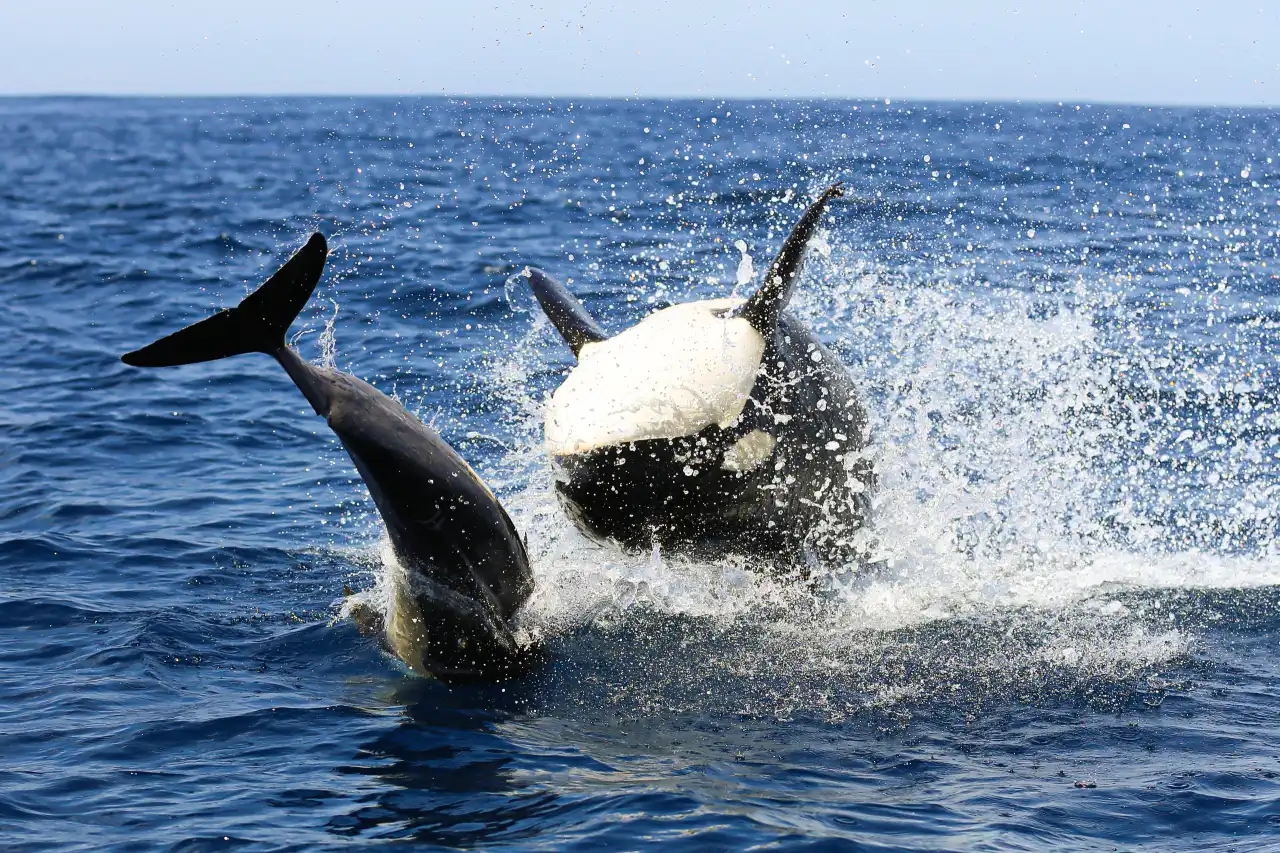Sardine Run - Erlebe das Abenteuer Deines Lebens!
Ostküste bei East London - Transkei South Africa SARDINE RUN
Juni 2026 & 27 – 10 Nächte an der Ostküste bei East London
Das Naturschauspiel Deines Lebens:
Auch an Land ein Erlebnis:
Inklusive:
SARDINE RUN – Das Spektakel der Natur hautnah erleben!
Optional gegen Aufpreis
Sardine Run 25 Jahre Expert-Tours – Erlebe das Abenteuer Deines Lebens!
Dates
- East London
- 02.06. - 12.06.26
- 12.06. - 22.06.26
- East London
- 02.06. - 12.06.27
- 12.06. - 22.06.27
- Expert-Tours – Erlebe das Abenteuer Deines Lebens!
- Max. 10 Personen pro Gruppe
Preis: 3.950 € im Doppelzimmer
Weitere DatenBuchungsanfrage
Sardine Run - migration
Additional information about the Sardine Run
Sardine Run - migration
The sardine run is the annual migration of sardines along mainly the east coast of South Africa, beginning at Cape Agulhas in January and ending in the coastal area of Kwazulu Natal at the end of July. During this gigantic sea migration, the sardines swim in shoals along the coast, in some places so close that in the past many coastal residents and fishermen flocked to the beaches to catch the sardines with nets, baskets, even with skirts. And this is how the Sardine Run comes about: the masses of sardines found at the Cape live in the cold and plankton-rich waters off the Agulhas Banks. Due to the east coast winter storms and winds, the warm, north-south flowing Agulhas Current is pushed from the coast to the open sea and a partion - a counter current of the cold Benguela Current, spreads along the east coast. Due to the resulting countercurrent and the associated spread of the plankton-rich and cold water along the coast, the sardines are now being drawn from the southwest towards the northeast following Plankton their food! The Sardine Run, as it became known through TV and documentaries, has changed a lot in recent years. Climatic influences, overfishing and changes in the behavior of the fish show that it is increasingly smaller masses of fish. Fulfilling the dream that many of our guests bring with them - to experience a so-called baitball - is becoming increasingly difficult due to the developments mentioned. But it's not impossible and we're doing our best to make it possible. Travelling long distance and lots of hours at sea!
Best time and Place
· February to mid/late May: around Port St Francis
· Late May to early June: Chintsa / East London
· June and July: Hole in the Wall at Coffee Bay / Transkei
Contrary to popular belief that the Sardine Run only takes place between June and July, we, Expert-Tours, offer the Sardine Run off the east coast from February - at the end of the South African summer. And only with the beginning of the autumn storms do we shift our tours to the north along the east coast.
Why? Because the fish is already there. Between Mossel Bay and Port St Francis all the way up to Port Alfred, sardines, redeyes and mackerel are present all year round. Fish sometimes form huge swarms herded into Baitballs by predators at depths of 100 m up to the surface. These swarms attract predators and we try to be at the right place when a Baitball forms. Cape Gannets, which attack from the air, Common Dolphins, Bryde's Whales, Minke Whales and Orcas or killer whales may bee seen hunting fish during the Sardine Run.
A day on the Sardine Run
After early breakfast, either in the guest house or in the apartment, we make our way to the launch site of the vessel together in our group. We usually spend 5-6 hours at sea. Basic Food along the way, drinks and a good mood will be provided. After returning, the restaurants/bars of our launch sites offer the opportunity to shower and have a typical South African drink, the popular OBS (Old Brown Sherry) or a bite to eat.
Back at the accommodation, the equipment is washed, pictures downloaded. Dinner, depending on the area is in the guesthouse or restaurants in walking distance.
Can we Scuba?
South Africa offers very beautiful, colorful reefs rich in species and fish. Here the world is in order. A colorful underwater world awaits you in yellow, red, orange, purple and more. Sponges, soft and hard corals, endemic cat sharks, but also big fish like sand tiger sharks, dusky gray sharks, copper sharks or catsharks can surprise you on your dive. The plankton-rich water provides food for everyone and is the reason for a large variety of species. Due to the plankton, you have to be prepared for the sometimes rather cloudy and greenish water. Swells are also often a factor that you usually only experience when diving in South Africa. If you are not deterred by all this and would like to get in touch with a sand tiger shark, you have come to the right place. The dives are made at depths between 15 and 30 meters and of course also depend on weather conditions, as some dive sites are offshore.
The water temperatures depend on the current, but average between 16 and 18°C.
We dive under the applicable laws and with current permits where required.
Weather Contingencies
What if the weather doesn't cooperate? Due to the early start of our season and the advantage of the South African summer, along with our launch sites (typically departing from a harbor), weather-related cancellations are rare. However, if weather disruptions do occur, we offer alternatives such as visits to nearby game parks (Big 5), sand dunes, secluded beaches, and various shopping centers. Any alternative bad weather program is coordinated with the group to ensure that no day is lost.
Accommodation
Accommodation is provided in guesthouses, apartments, or hotels, depending on the travel period. Typically, accommodation is in double rooms with breakfast included. Single rooms can be arranged upon request.
Wildlife Safaris in National Parks / Game Safaris
The term "game" refers to wild animals, but also to "deer" or "venison." Therefore, a game safari is not related to a recreational game. During guided tours, either by our team or a park ranger, participants can observe wild animals from the vehicle. With some luck, the Big Five (elephant, rhino, buffalo, lion, leopard) can be spotted.
Weather and Clothing
We advise that warm clothing should definitely be part of your travel gear. It’s possible to experience all four seasons in a single day, with surprising temperature variations between day and night. We highly recommend bringing a rain or wind jacket, a hat, and gloves for protection against the cold on the boat. On land, a warm sweater is also essential. Layered clothing is the key to staying comfortable.
Insurance, Medical Certification, and Physical Fitness
The Sardine Run is an adventure. We spend several hours on the boat, exposed to wind and waves. We dive and snorkel, which is physically demanding. Additionally, boarding and disembarking from the boat require physical effort, and during the boat rides, every muscle is engaged to maintain balance and hold on. We ask for a healthy self-assessment, and if in doubt, a medical clearance is advisable.
A diving insurance policy, accident insurance, and international health insurance should definitely cover your stay in South Africa. We also strongly recommend travel insurance that includes COVID-19 coverage.
General Information
All our activities take place in the wild, natural environment of South Africa. Changes on-site may be necessary due to sea or weather conditions, as well as regulations from environmental or marine park authorities.
Some areas in South Africa experience water shortages, so we ask for responsible use of water resources in accommodations. Power outages, known as load shedding, are also possible, during which the government temporarily cuts off electricity regionally. Usually, this is managed with generators, but we recommend bringing power banks, batteries, as well as a small headlamp or flashlight in addition to your dive light. A South African adapter is also necessary to connect your devices to the power grid.


